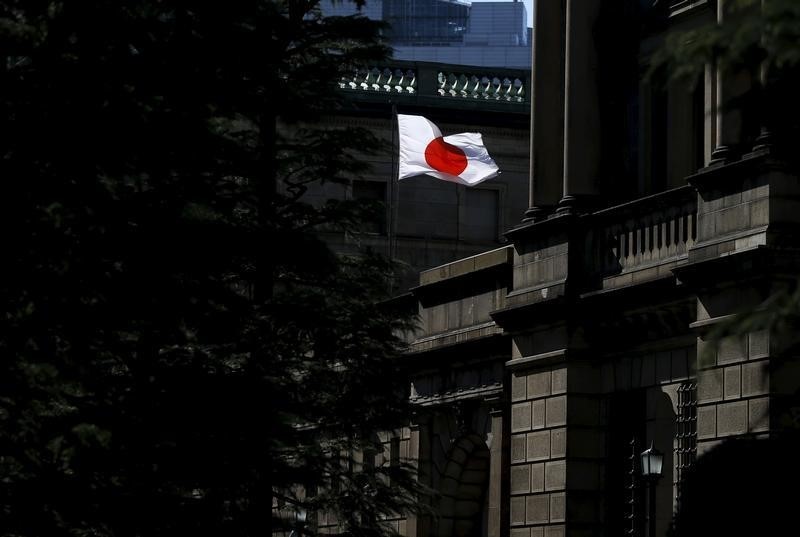Investing.com -- Japanese government bond yields rose sharply on Friday, hitting the top end of the Bank of Japan’s control range as markets speculated over a potential change in the bank’s ultra-dovish stance.
10-year Japanese government bond yields jumped 13.5% to 0.50% - testing the upper end of the BOJ’s yield curve control (YCC) range for the first time in four months.
The move comes after a Nikkei report suggested that the central bank was considering altering its YCC policy in a meeting later on Friday.
Inflation has remained sticky and well above the BOJ’s target range in recent months, which puts pressure on the bank to begin tightening policy to curb high prices. Recent data showed that underlying Japanese inflation remained close to 40-year highs, showing that price pressures now extended beyond volatile items like fresh food and fuel prices.
Data on Friday also showed that inflation in Tokyo grew more than expected in July, likely heralding a similar trend in nationwide inflation.
The BOJ is widely expected to keep interest rates at negative 0.1% on Friday. But the bank could potentially widen the range within which it allows yields on 10-year government bonds to fluctuate, which is currently negative 0.5% to 0.5%.
The bank had last altered the YCC policy in December, amid mounting inflation and pressure from the market to begin tightening policy. The move was the BOJ’s first change to the YCC policy since its introduction in 2016.
The policy was introduced in a bid to stimulate inflation, which remained weak despite excessive bond buying. Its aim was to subdue short- to medium-term rates and increase liquidity without reducing super-long yields and denting returns for pension funds and life insurers.
But this saw trading in Japanese bonds drop drastically since the policy’s introduction.
Still, a spike in Japanese inflation over the past year saw traders begin questioning just how long the BOJ could maintain the strict policy, which in turn prompted yields to begin testing the YCC policy’s top end.
The bank is now reportedly considering a widening in the YCC range, or even its potential scrapping this year.
